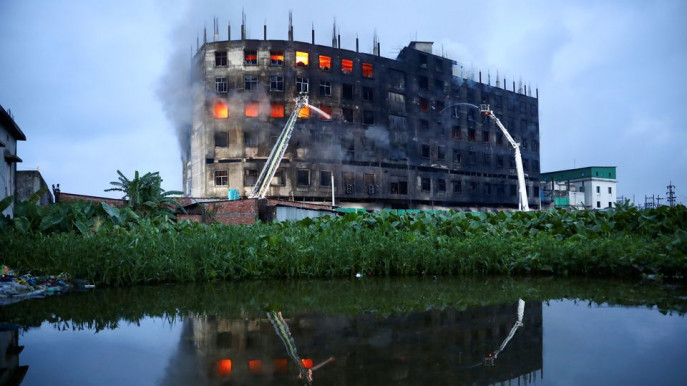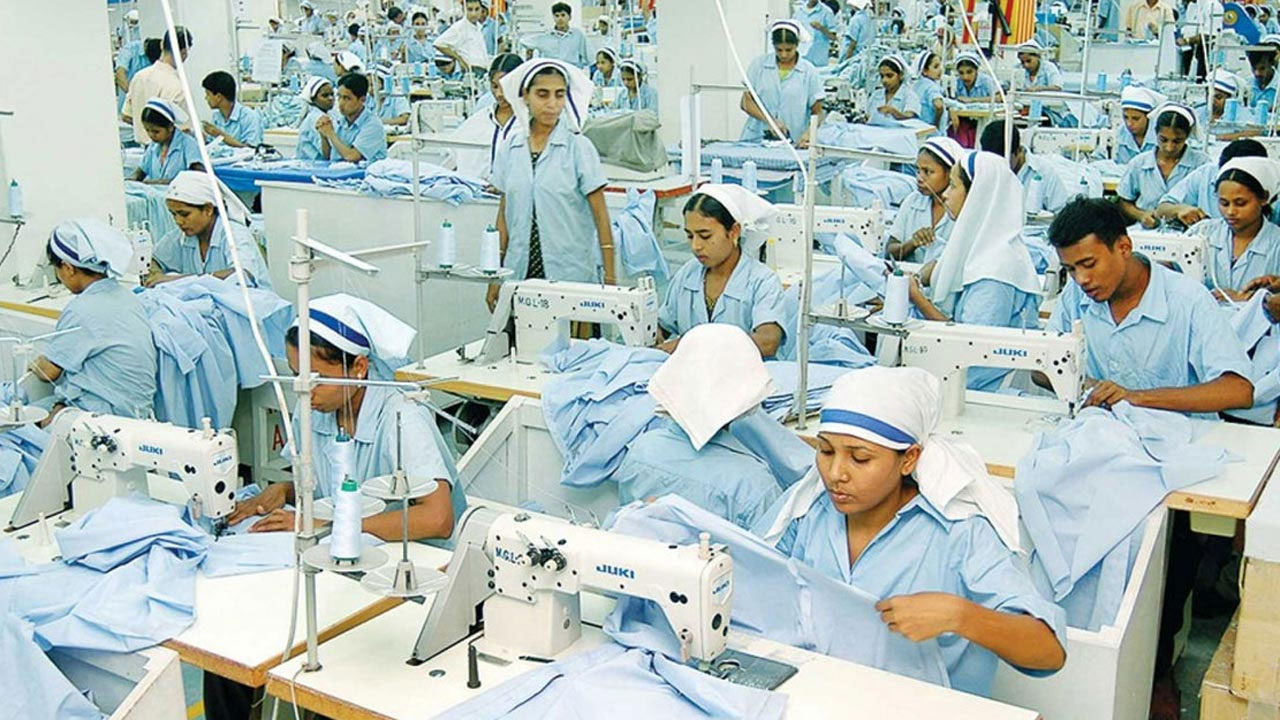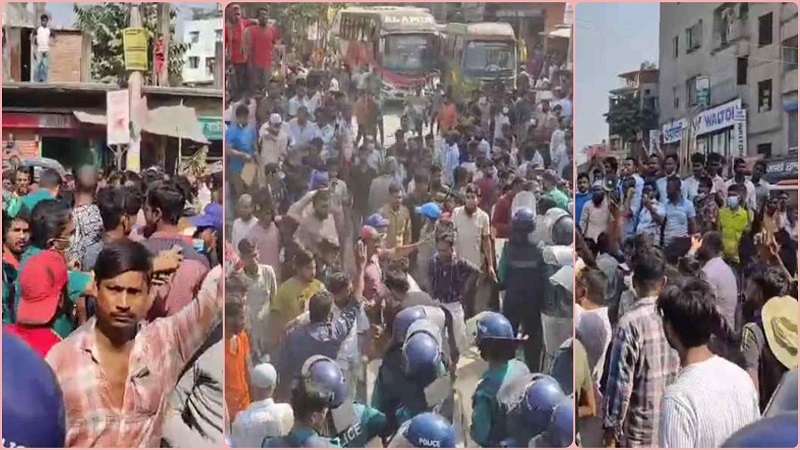Setting up a factory requires the permission of the Rajdhani Unnayan Kartripakkha (Rajuk), local municipality or union, Fire Service, and Department of Inspection for Factories and Establishments (DIFE). If a factory uses an excessive amount of chemicals, it has to take additional permission from the Department of Explosives.
A factory has to renew its licence every year or every two-three years while it is operating. The authorities are supposed to inspect the factories regularly to ensure the quality of life and safety of the workers.
However, despite all these requirements, no department or agency is fulfilling its responsibility for the safety at the factories, experts and officials concerned have said.
Over 100 people died in a horrific fire at Tazreen Fashion factory in Ashulia in 2012; 1,136 people died when Rana Plaza collapse in 2013 – an accident that shook the world; over 100 people died in a fires at Tampako factory in Gazipur in 2017 and at the chemical warehouses in Old Dhaka.
After hundreds of deaths in the fires at factories, the negligence of all government institutions in fulfilling their responsibilities has come up again and again.
According to the Fire Service, almost all of the 1.68 lakh incidents of fire occurred in the last ten years have been caused by negligence of the authorities concerned.
"The companies engaged in ensuring factory safety have a manpower and infrastructure crisis, but they also do not carry out their duties properly," said Brig Gen (retd) Abu Nayeem Md Shahidullah, a member of the National Health and Safety Council and former director general of Fire Service.
"The garment factories comply with the regulations under the buyers' pressure, but that is not happening in other factories," he added.
Major (retd) Shakil Newaz, former director of the Fire Service and Civil Defense, thinks that no department had worked on the Shezan juice factory that caught fire in Narayanganj.
He said, "The building was faulty from the very beginning. The architect who designed the building, the one who passed the design, the one who licensed the design, the one who paid the insurance for the design, the banks which lent a few thousand crores on this nonsensical plan are all responsible for the fire."
"How did the city corporation give the business trade license in such a defective building? How did the deputy commissioner approve it? It should be investigated whether the factory owners' association, the Fire Service, and Ministry of Labour was turning a blind eye to the irregularities at the factory," he said.
The building was supposed to have a state-of-the-art fire hydrant or sprinkler system, but the owner did not install them there, said sources.
Irregularities, manpower shortage weaken Department of Inspection for Factories
After the Rana Plaza accident, the government strengthened the DIFE and Establishments under the pressure of various development partners and organisations, including the International Labour Organisation (ILO).
The government increased its manpower from 314 to 993 by creating organisational structure. But it was the only reform that has been done. After that the organisation did not run at normal speed. At present, its manpower is reduced to only 321 officers from inspector to higher level.
The DIFE has already informed the higher authorities that it needs 20,000 staff members for the 90 lakh companies operating across the country.
They have submitted the demand for 3,500 staff in 2019 as per the instructions of the labour ministry. The demand letter also recommended increasing the number of its offices from 21 to 64 – one in each district.
Aside from these, the DIFE is in dire straits due to the irregularities in the promotion and transfer of officers and employees.
The DIFE officials said 15 of the 27 posts of deputy inspector general are vacant. There are 178 posts of assistant inspector general (AIG), against which only 69 are recruited. There are 364 posts of labour inspectors, where 231 are working.
Moreover, the department's work is not progressing much as many of these posts were filled up with people who did not have the necessary qualifications, but were chosen by some powerful individuals.
According to the office of the Deputy Inspector General (DIG) of the DIFE, the officers at the bottom of the seniority list are carrying out duties in the heavily industrialised districts like Dhaka, Gazipur, Chattogram and Narayanganj. There is no transparency in the process of promotion at the department.
On condition of anonymity, a labour inspector said, "Our job has no future. We are not being promoted. The government appointed about 200 inspectors from the 33rd BCS. Seeing the uncertain future, many of these meritorious officers have left the department."














